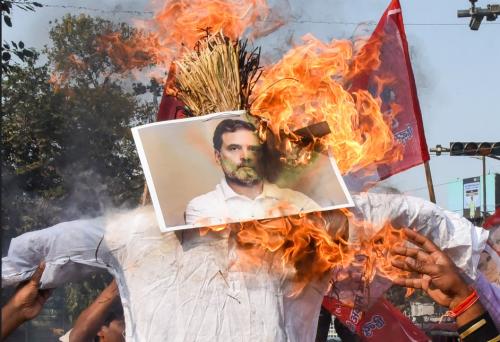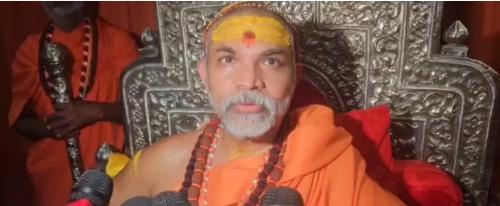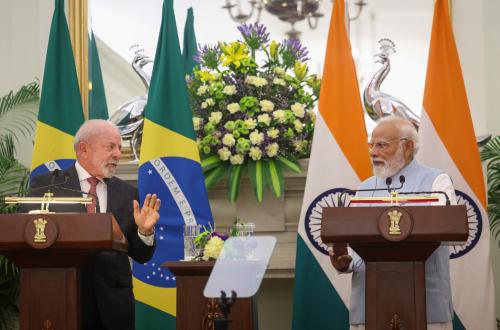No doubt, Sonia Gandhi has revived the Congress Party’s fortunes and ensured its return to power a second time at the Center with greater strength, but somehow one gets the feeling that she is not in control of the party. Rahul Gandhi, despite his mass contact program, has not succeeded in his mission to shake up the party and galvanize it into action so that it could handle the coming assembly elections with a degree of confidence, particularly in the crucial states of Bihar and Uttar Pradesh.
By M K Dhar
The state of drift that has overtaken the Congress Party and the UPA-II augers well for neither and needs immediate correction in the interest of political stability. The party seems to revel in the hope that the opposition to it will remain permanently sick and may never be restored to health and hence it can take things easy to the extent of ignoring popular sentiment and discontent. But the Opposition’s disarray does not necessarily impart strength to it. The debacle in Telengana can be explained away easily because none of the seats was previously held by the Congress Party, which was, however, confident of wresting some of them from the Talengana Rashtra Samiti. But the defeat of the Pradesh Congress Committee president Srinivas is a big blow to its prestige.
The Congress Party may be in for some more shocks when elections take place to Bihar and other legislatures because its promised revival has not come about. On the contrary, in Andhra Pradesh the Congress is badly divided, with Telengana in revolt and Jaganmohan Reddy, son of late Chief Minister Raja-sekhara Reddy, busy dividing the party by proceeding on his yatra in defiance of the High Command. With some 28 legislators with him, he may well threaten the coherence, if not the immediate survival, of the Andhra Pradesh government, the sole southern bastion of the party. Unless corrective steps are taken and unity in the party restored, it might receive a drubbing at the next assembly elections.
No doubt, Sonia Gandhi has revived the Congress Party’s fortunes and ensured its return to power a second time at the Center with greater strength, but somehow one gets the feeling that she is not in control of the party. Rahul Gandhi, despite his mass contact program, has not succeeded in his mission to shake up the party and galvanize it into action so that it could handle the coming assembly elections with a degree of confidence, particularly in the crucial states of Bihar and Uttar Pradesh. The polarization brought about by Mandal-Mandir politics has seen the party losing the crucial constituencies of Muslims, Backward Classes and Dalits. Its “catch all” appeal was blunted with the middle classes, put off by the stink of corruption and compromises embracing BJP’s promise of a clean alternative and the bold espousal of economic reforms making the poor and vulnerable doubt the party’s intent. Sonia faced boldly the task to pull the organizational chestnuts out of the fire.
Though many well-meaning and high-sounding speeches have been made by successive presidents on the subject, the Congress has yet to adopt an agenda for its own transformation in the years to come. As is evident in the case of Telengana, for the Congress Party a due process is no more than a way of sweeping inconvenient issues under the carpet because it lacks a forward looking agenda. Clearly, the Congress lost the goodwill it won in Talengana after the December 9, 2009 announcement of the Center’s support for a new state. Telengana Rashtra Samiti supporters had celebrated the occasion holding aloft Sonia Gandhi’s portrait. But when the Srikrishna Commission was set up, its terms of reference were diluted to examine the situation in Andhra Pradesh with reference to the demand for a Telengana state “as well as the demand for maintaining the present status of united Andhra Pradesh.”
In Bihar the Congress is hopeful of capturing power despite all indications to the contrary. It still has not put its organizational structure toge-ther, nor implemented the promise to galvanize the youth by involving it in its reconstruction. Owing to infighting among leaders, it changed its PCC president only last moth and shunted out Jagdish Tytler, who had done a good deal of work in building the organization. Barely three months to the polls, the Congress is banking on the public rallies Sonia Gandhi and Rahul Gandhi are due to address in Bihar in the coming weeks. But the organization remains in shambles at the grassroots level and party offices do not exist in many mandals and blocks. There-fore, the appeal of these two leaders may not transfer into vote against the contrary pull of local caste and other factors and administrative pressure and sectarian considerations.
In Uttar Pradesh, the dramatic shift of the Muslims towards the Congress in the last Lok Sabha elections gave it an impressive tally of 20 seats. This was hailed as gharwapsi (homecoming) of Muslims in Uttar Pradesh to the grand old party. Muslims, who constitute 19 percent of the state’s population, are crucial to the Congress for putting up a better performance in the assembly elections in 2012. It presently holds a meager 23 in a House of 403. A party needs to be seen as “Muslim plus” in its support base to be considered as an alternative by the Muslims. The Congress not only needs the support of the Muslims, but also has to win back the support of the Upper Castes and Dalits, which traditionally voted for it. The Congress needs not only an electoral victory, but also a political one, based on ideals, Rahul Gandhi, who has been touring extensively in the State to the discomfiture of Chief Minister Mayawati, needs to bring a paradigm change in the state’s politics by taking it beyond the discourses of religion, caste and money and muscle-power.
It remains to be seen to what extent Rahul Gandhi succeeds in transforming the face of the Indian Youth Congress and the National Students Union of India through transparent elections which are expected to throw up grassroots leadership and loosen the hold of the old satraps who prevent its democratic functioning and young people being inducted to it. Similarly, elections to the post of state Congress chiefs will bring to the fore leaders with mass base unlike many among the existing, who are nominated by the Congress president without a recognizable electoral base. This trend is reflected in Dr. Manmohan Singh’s government also, with many important portfolios having been captured by Rajya Sabha members, who have no direct contact with the masses and, therefore, do not fear the consequences of their actions or ill-considered decisions that are unpopular, but taken in pursuance of a hidden agenda of liberalization or under IMF and World Bank diktats.
Though Rahul Gandhi wants to change the present system of appointment to party posts, one needs to watch how well he overcomes the opposition from the old power-brokers and influence peddlers and those who have controlled the party at the state level for decades. The party needs to participate in the people’s lives, which can be done by only those leaders, who have worked at the grassroots and come up by dint of their own efforts and work-record.
Sonia Gandhi and Rahul Gandhi believe in deriving political energy directly from the masses. But, unfortunately, these running the UPA-II government are mostly not mass leaders who share a magical bond with the people. They are happy to address the people through television appearances and manage favorable media coverage though extravagant spending. This negates the good effect of the strenuous campaigning under taken by the mother-and-son duo. There is still time for the Congress Party to revive itself fully and Sonia and Rahul must not fail in the commitment to do so.
Courtesy: Daily Excelsior












